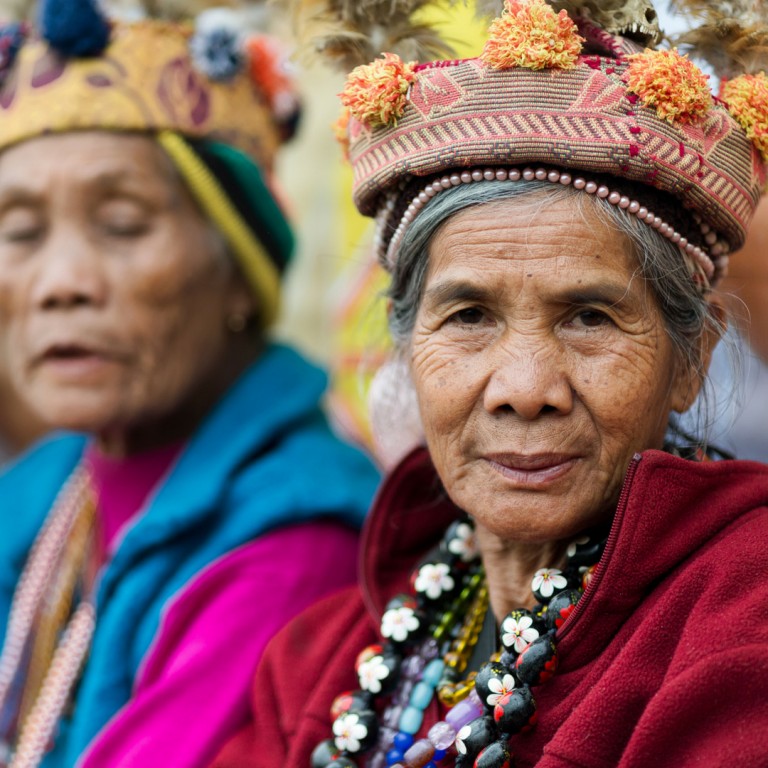
Published 27 July 2018, The Daily Tribune
Supposing you are Apo Whang-od Oggay, the last and oldest mambabatok of the great Butbut people of the larger Kalinga ethnic group and you woke up one day to find a stranger scanning your ancestral land in Buscalan, Tinglayan, Kalinga Province. This stranger, a lowlander from the greater Metro Manila, had the audacity to show you a Deed of Absolute Sale and a Transfer of Certificate Title in his name embodying your entire ancestral land. What would you do? Where will you file a case for cancellation of title? Will it be with the Regional Trial Courts?
However you, Apo Whang-od, may have read Section 66 of the Indigenous Peoples’ Rights Act (IPRA) which defines the National Commission on Indigenous Peoples’ (NCIP) jurisdiction as follows:
Sec. 66. Jurisdiction of the NCIP. − The NCIP, through its regional offices, shall have jurisdiction over all claims and disputes involving rights of ICCs/IPs; Provided, however, that no such dispute shall be brought to the NCIP unless the parties have exhausted all remedies provided under their customary laws. For this purpose, a certification shall be issued by the Council of Elders/Leaders who participated in the attempt to settle the dispute that the same has not been resolved, which certification shall be a condition precedent to the filing of a petition with the NCIP.
So now you are contemplating filing a case with the NCIP. I must first caution you. In the 2015 case of Unduran vs. Aberasturi (GR 181284, October 20, 2015 and re-affirmed in an en banc resolution on April 18, 2017), the Supreme Court ruled that the mere fact that a case involves members of Indigenous Cultural Communities (ICC)/Indigenous Peoples (IP) and their ancestral lands is not enough to bring it within the jurisdiction of the NCIP.
The Supreme Court ratiocinated that: Section 66 shows that the NCIP shall have jurisdiction over claims and disputes involving rights of ICC/IP only when they arise between or among parties belonging to the same ICC/IP. This can be gathered from the qualifying provision that “no such dispute shall be brought to the NCIP unless the parties have exhausted all remedies provided under their customary laws. For this purpose, a certification shall be issued by the Council of Elders/Leaders who participated in the attempt to settle the dispute that the same has not been resolved, which certification shall be a condition precedent to the filing of a petition with the NCIP.”
The qualifying provision requires two conditions before such disputes may be brought before the NCIP, namely: (1) exhaustion of remedies under customary laws of the parties, and (2) compliance with condition precedent through the said certification by the Council of Elders/Leaders. This is in recognition of the rights of ICC/IP to use their own commonly accepted justice systems, conflict resolution institutions, peace building processes or mechanisms and other customary laws and practices within their respective communities, as may be compatible with the national legal system and with internationally recognized human rights.
Section 3 (f) of the IPRA defines customary laws as a body of written and/or unwritten rules, usages, customs and practices traditionally and continually recognized, accepted and observed by respective ICC/IP. From this restrictive definition, it can be gleaned that it is only when both parties to a case belong to the same ICC/IP that the above-said two conditions can be complied with. If the parties to a case belong to different ICC/IP which are recognized to have their own separate and distinct customary laws and Council of Elders/Leaders, they will fail to meet the twin conditions. The same holds true if one of such parties was a non-ICC/IP member who is neither bound by customary laws as contemplated by the IPRA nor governed by such council. Indeed, it would be violative of the principles of fair play and due process for those parties who do not belong to the same ICC/IP to be subjected to its customary laws and Council of Elders/Leaders.
Therefore, pursuant to Section 66 of the IPRA, the NCIP shall have jurisdiction over claims and disputes involving rights of ICC/IP only when they arise between or among parties belonging to the same ICC/IP. When such claims and disputes arise between or among parties who do not belong to the same ICC/IP, i.e., parties belonging to different ICC/IP or where one of the parties is a non-ICC/IP, the case shall fall under the jurisdiction of the proper Courts of Justice, instead of the NCIP. But more than legal niceties involving jurisdiction issues, is the always-relevant reminder to respect the rights, norms and culture of our indigenous communities.
For comments and questions, please send email to cabdo@divinalaw.com

